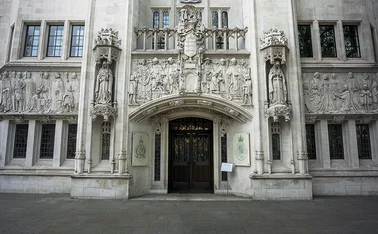
Analysis: Repair costs

Need to know
- Insurers are being accused of profiteering to the detriment of repair shops
The questionable practice of marking up at-fault repairs continues, despite resistance in some quarters. Will this status quo ever be challenged?
In the national press and on social media, insurers are being accused of inflating repair cost invoices on third-party claims. The truth about the practice is more nuanced, but the accusations against insurers remain strong. Tim Kelly, director of Motor Claims Guru, said: “It isn’t that insurance companies are inflating repair costs, it’s that insurers are profiteering to the detriment of repair shops. They’re basically stealing the profit that a body shop would have earned out for a repair for themselves.” Post explores both sides of the issue.
Abuse of power?
Insurers that procure competitive rates with repair firms and suppliers, an issue raised by Channel 4’s Dispatches in 2013, charge invoices to at-fault insurers at market rates, before receiving a rebate from the repair firms to make up the difference.
An anonymous group of repairers, who go by the Twitter handle ‘Real Repairers’, have taken to social media in recent weeks in an attempt to highlight the issue.
“The issue for Real Repairers is that true and fair rates are suppressed through a process of abuse of power with big corporates and small suppliers,” said a spokesman for the group.
“One could argue the current market has all the hallmarks of a rigged cartel. One thing is sure, so-called invoice inflating does take place and many insurers are content to operate unethically by stitching each other up.”
A source described a situation whereby an insurer with its own repair network would issue invoices to at-fault parties at its internal break even rate.
“It was giving its profits away to the extent that it was repairing cars cheaper than other insurers could themselves through their own networks,” the source said, adding it soon realised what it was doing and the status quo was restored.
The framework for today’s practices was formed in the Court of Appeal in 2013, when a judge presiding over the case of Coles v Hetherton – which centred on a dispute between RSA, Allianz and Provident – ruled that charging market rates to at-fault insurers, rather than the actual cost of the work, was legal.
Axa’s technical director David Williams said: “Going back to before we were even aware of it, people started to notice that claims from RSA seemed to be higher than expected. A couple of companies started investigating these things, and we came to the conclusion that something was going on that wasn’t appropriate.
Talking point
The number of body shops in the UK has fallen from 20,000 to less than 6000 in the past 20 years.
The practice was examined in a 2014 Competition and Markets Authority investigation, which found insufficient evidence of competition concerns in
post-accident repair for it to intervene.
“It transpired that if a claim was being submitted to an insurer, RSA would put a mark-up on top of the cost to it of the repair work. It would effectively be making a profit on the repair work. We were quite appalled by this, most of the insurance industry was appalled by this. We immediately stopped making any payments to RSA.
“In the court at first instance, the judge described the whole thing as being ‘as close to fraud as anything I’ve ever seen, but I can’t believe it is’. It found in favour of the other insurers, but RSA was confident in its legal position. It was challenged and on appeal the courts decided that you could indeed recover more than your outlay.
“We and most of the industry weren’t very happy with that. Still to this day, I believe that it’s inappropriate behaviour.”
A spokeswoman for RSA said: “To manage not-at-fault claims, we use our own repair network to complete work, and create bilateral arrangements with other insurers that agree to reimburse repairs to one another at cost price.
“There are a variety of other models used by insurers and intermediaries when settling claims, many involving accident management companies, credit repair companies and body shops, and this can drive complexity and cost for the end customer. The case in 2012 reviewed how not-at-fault motor repairs were handled across the market, and found in favour of our approach.”
According to Kelly, the number of body shops in the UK has fallen from 20,000 to less than 6000 in the past 20 years partly as a result of the introduction of these practices.
A spokesman for the Association of British Insurers said: “It is a practice that is prevalent in the motor insurance market, probably no different from any other large provider, obtaining discounts through economies of scale.
“In terms of detrimental impact to customers, it is going to be very small fry indeed compared to other cost pressures such as insurance premium tax and the discount rate.”
The spokesman added that the practice helps non-fault insurers manage their costs, which in turn can be reflected in pricing to customers. “If you’re a non-fault insurer today, tomorrow you could be an at-fault insurer,” he said. “There’s an element of swings and roundabouts to this.
“Having said that, there are a number of insurers that do not really feel happy with the way the system is running at the moment. It’s not perfect, we would be the last to pretend it is.
“No one is pretending it’s a perfect system, because in any ultra-competitive market, such as motor insurance, there are going to be elements of it that appear to
be dysfunctional.”
The Real Repairers’ spokesman said: “Does this matter? Yes, it does. Lack of profitably has a direct effect on consumer safety.
“If it were not for the hard work and commitment of real repairers and their commitment to consumer safety, a terrible incident would have occurred already. That cannot be guaranteed in perpetuity.”
In breach of regulations?
With concerns over consumer safety, and body shops undoubtedly losing out financially, there is a potential pitfall waiting for insurers also.
Kelly explained how the Financial Conduct Authority’s Insurance Conduct of Business regime could be leaving insurers in breach of regulations: “Insurers are defrauding consumers from their lawful entitlements,” he said.
“ICOB states that if insurers profit from providing service to you, they have to declare it to you as a consumer. So if I sold you a policy as a broker and got commission on it, I would have to declare it to you. This isn’t happening with insurance claims. Insurers are forgetting this completely, they don’t see it as relevant because they don’t want you to know how they make money on the side.
“It’s far from being transparent, it’s actually the complete opposite, and it’s so murky it’s embarrassing.”
The spokesman for the ABI responded: “No insurer would seek to do that, and insurers are very mindful of FCA rules. In terms of regulations and requirements, insurers should be following every regulation and requirement that they’re obliged to.”
Solutions
Many insurers are undoubtedly uncomfortable with the practice, and feel forced to follow the lead of others so as not to be at a competitive disadvantage. A solution to the issue is difficult to envision, however, with competition regulations restricting the action insurers can take.
A spokeswoman for Co-op Insurance said: “When this practice first started to become widespread, we sought to influence the insurance market not to adopt this model by providing a response to the Competition Commission’s issues statement.
“We made two suggestions at the time. The industry could switch to a first-party insurance model, which would mean that insurers are responsible for all repairs on their customers’ vehicles, regardless of whether they’re at fault or not. This would, however, require a change in the law and new legislation.
“The second suggestion was for insurers collectively to agree not to differentiate between the repair rates charged for fault and non-fault repairs.
“Ultimately, this cannot be solved by one insurer. Both of these suggestions require industry collaboration in order to work effectively for customers.”
Williams said: “The problem is, if we were to stop doing it as an individual company, we would be disadvantaged by that, so we’d need to come to some sort of an agreement.
“If a load of insurers get in a room and come to an agreement on something that impacts pricing, that’s in breach of competition regulations, so we’re not allowed to do that. I can’t even have conversations like that with another insurer because it would directly impact pricing, and that’s considered price fixing.
“The reason this has been raised now is because a couple of keyboard warrior repairers think that it’s unreasonable that motor repairers get lower rates on certain claims from insurers. They’re having a go at the people that are the loudest critics of this, but they’re doing it because they’re angry they’re getting screwed down on rates.
“They want us to pay more in our rates in general, which clearly would have an even bigger impact on insurance premiums.
“We spent tens of thousands of pounds challenging this, and we made ourselves very unpopular with some people as a result. But you can only do so much. It’s an unfortunate practice that we would be very happy to see changed, but it would, from ours and our customers’ perspective, have to change across the entire industry.”
Only users who have a paid subscription or are part of a corporate subscription are able to print or copy content.
To access these options, along with all other subscription benefits, please contact info@postonline.co.uk or view our subscription options here: https://subscriptions.postonline.co.uk/subscribe
You are currently unable to print this content. Please contact info@postonline.co.uk to find out more.
You are currently unable to copy this content. Please contact info@postonline.co.uk to find out more.
Copyright Infopro Digital Limited. All rights reserved.
As outlined in our terms and conditions, https://www.infopro-digital.com/terms-and-conditions/subscriptions/ (point 2.4), printing is limited to a single copy.
If you would like to purchase additional rights please email info@postonline.co.uk
Copyright Infopro Digital Limited. All rights reserved.
You may share this content using our article tools. As outlined in our terms and conditions, https://www.infopro-digital.com/terms-and-conditions/subscriptions/ (clause 2.4), an Authorised User may only make one copy of the materials for their own personal use. You must also comply with the restrictions in clause 2.5.
If you would like to purchase additional rights please email info@postonline.co.uk







